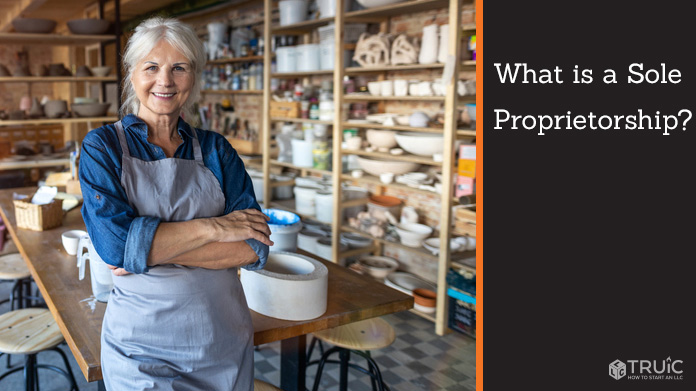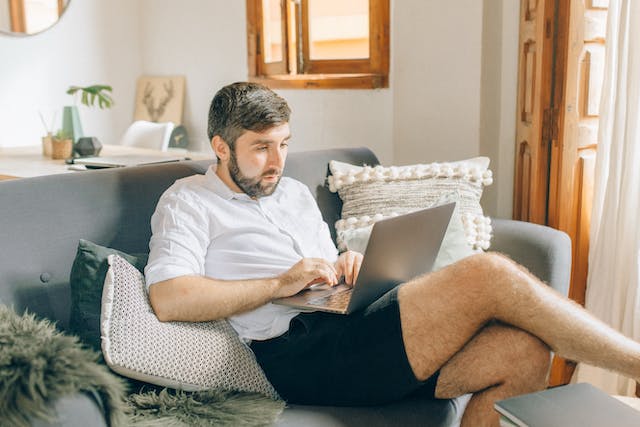
An important question to ask when forming a sole proprietorship is: How many of my personal assets may be lost should the business fail? Am I protected should the business fall into legal trouble? Here we will discuss how much protection the sole proprietorship offers to the owner’s personal assets.
Do sole proprietorships need to be registered?
Do you provide goods and services to people? Do you know that you are technically a sole proprietorship if you do? You might want to know whether you need to take further steps in order to formally become a sole proprietor. Here we will discuss the ease with which sole proprietorships are formed, and how there is no need to register as such with the state.
Many people render goods and services to others in their daily lives. However, they may not always see themselves as businesspeople. For example, a freelance writer may be considered a sole proprietor and yet they would never identify as such. This highlights how the sole proprietorship truly is the simplest business form in the US.

How do I become a sole proprietor?
Becoming a sole proprietorship requires no formal action and so long as you remain the single owner of a business, the position applies to you automatically because of your business undertakings. Many people may be sole proprietors already without their knowing it: examples of these are a freelance writer, a consultant, and any home-based business. This is what makes the sole proprietorship so distinctive – it is the only business form that isn’t obligated to register with the state.
However, it is necessary to procure requisite licenses and permits. These vary by the relevant industry, state, and location. For more detailed information on how to obtain necessary licenses and permits, look to the U.S. Small Business Administration and their links to the relevant official documents. Generally you would need to file for a business license. This you do with your city or county. Furthermore, should you wish to run your business from home, you may need to get authority to do so from your locality.
You have to remember that should you decide to operate your business under a name different to your own, you do have the responsibility to file a fictitious name, otherwise known as an assumed name, trade name, or DBA (doing business as). This name has to be unique and cannot already have been assumed by someone else.
Primary Characteristics of the Sole proprietorships:
One of the most important features of the sole proprietorship is that there is no legal difference between the owner and the business. The owner has access to 100% of the profits, but is also 100% responsible for any losses or debts. The onus falls on the owner to sign checks, contracts, and any legal agreement in their own name. Generally, payments are also made out to the owner’s personal name. The lack of separation between the owner and the business has the consequence that taxes are fairly simple to deal with. The business income is represented in the owner’s personal tax return. As even more of a bonus, the tax rates are some of the lowest compared to other business entities.
As the sole owner, the running of the business falls completely on your shoulders. You have ultimate control over the structure that your business will take and how it will operate. You do not have to confer with other relevant stakeholders should you wish to change operations or dissolve the business. In fact, the dissolution of a sole proprietorship is as simple as to halt the rendering of goods and services. You do not have to register the dissolution of the company, and provide any explanations for why the business no longer operates.
When would I need to register my sole proprietorship with federal or state authorities?
There are two reasons why you might need to register your sole proprietorship with federal or state entities and these include if your business plans to sell taxable products or services, in which case you are required to register with the taxing authority. Secondly, the moment that you decide to hire employees, then you have the responsibility to apply for an Employer Identification Number (EIN).
TRUiC provides excellent additional information on the characteristics of sole proprietorships, their benefits, and how they are formed.
What is a sole proprietorship?
A sole proprietorship is generally considered to be the simplest business form in the U.S.A., and it is the most common business type to be formed. Although the sole proprietorship can have numerous people who help in the operation of the business, there is only one owner. The sole proprietorship is formed very easily, in essence from when a sole proprietor starts selling goods and services to clients. As there are no official licenses and permits to obtain, many people might technically be sole proprietors without their knowledge. A sole proprietorship is also fairly easy to dissolve as the business only exists as long as the owner provides goods and services.
The primary features of a sole proprietorship:
Alongside how easy the sole proprietorship is to start, there is no legal separation between the owner and the sole proprietorship. Sole proprietors then have the ability to amalgamate business and personal properties, which other businesses are prohibited from doing. The other significant aspect of the sole proprietorship is the emotion of control. The owner has the ability to make any and all decisions relating to the business. There is no official input from other members, and so both the potential success and the possible failure lies squarely on their shoulders.
Do I lose my assets if my business fails?
Unfortunately, yes. The nature of the sole proprietorship means that there is no separation between you and the business. It can function under the personal name of the owner, or under a fabricated business name. You can be held personally accountable for all debts and duties of the business because as the business is not a separate entity, it is the owner who signs checks, contracts, and lease agreements in his or her own name. Furthermore, payments are generally made out to the sole proprietor’s legal name. As such, as the owner, you are eligible for all of the company’s profits, but in the same breath, all of the business’s debts, including any debts sustained from legal disputes. As an extension of that, if your business loses money, the onus is on you to compensate any creditors. This is the most significant disadvantage of the sole proprietorship. Your personal finances and the finances of your business are interchangeable. As examples, should you be in a legal dispute or have creditors, they may have the right to gain access to your personal accounts, assets, or property should your business be unable to fulfil its bills. As an extension of this, filing for bankruptcy for your business entails filing for bankruptcy in your personal capacity. Thus, a bankruptcy case in relation to a sole proprietorship encompasses both the business and personal assets of the owners and debtors. In order to combat this risk, it might be a good idea to get property and liability insurance as a method of safeguarding your personal assets if the business runs into financial trouble.
Can I protect my assets in any way?
The only manner to avoid this liability is to form a limited liability company (or LLC) which has the same advantages of the sole proprietorship, but while also providing asset protection. LLC owners are not held personally responsible for the debts of the business. Should you decide to form an LLC instead, it would be wise to get business insurance as this gives you added protection. General liability insurance is useful in protecting your business assets from lawsuits which otherwise could result in the forceful closure of the business. This type of insurance protects against injuries, property damage, personal liabilities, advertising liabilities, and legal defense and judgment.








